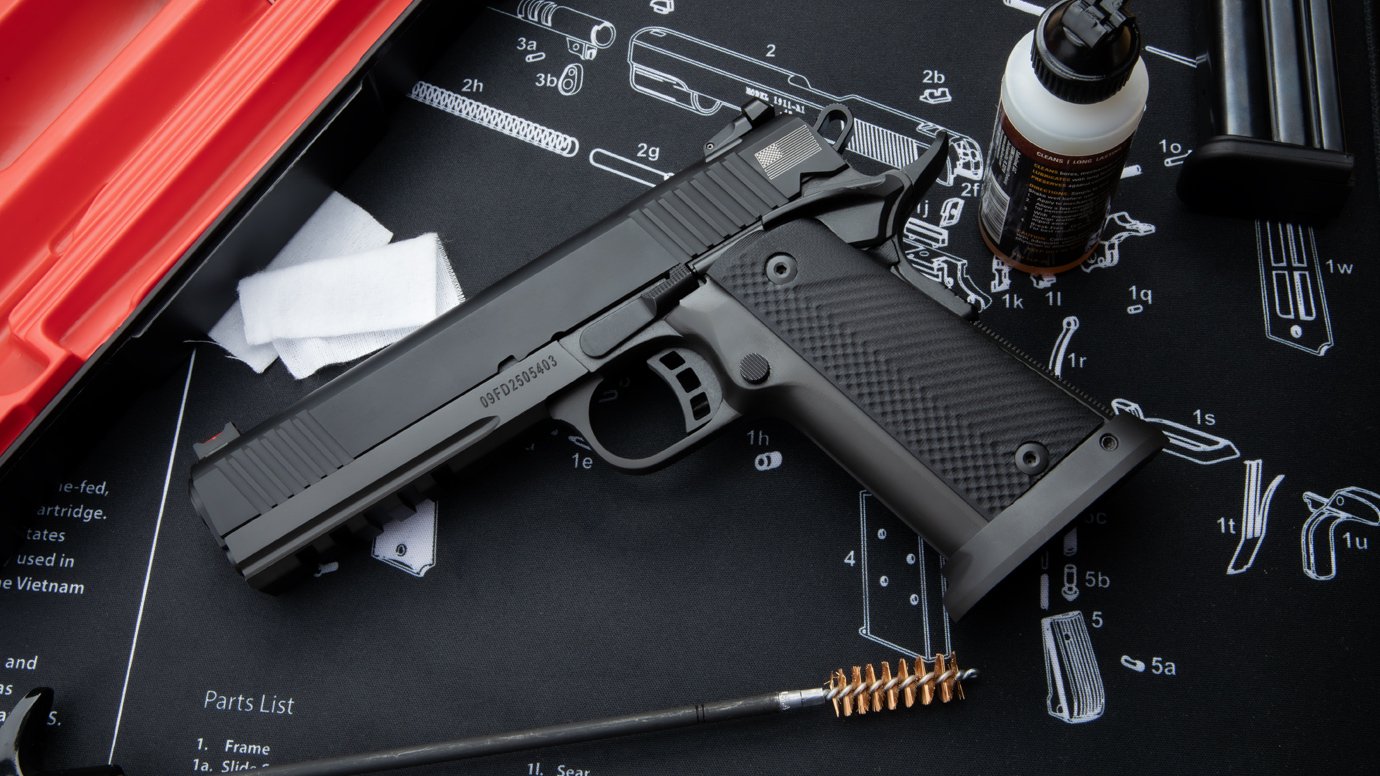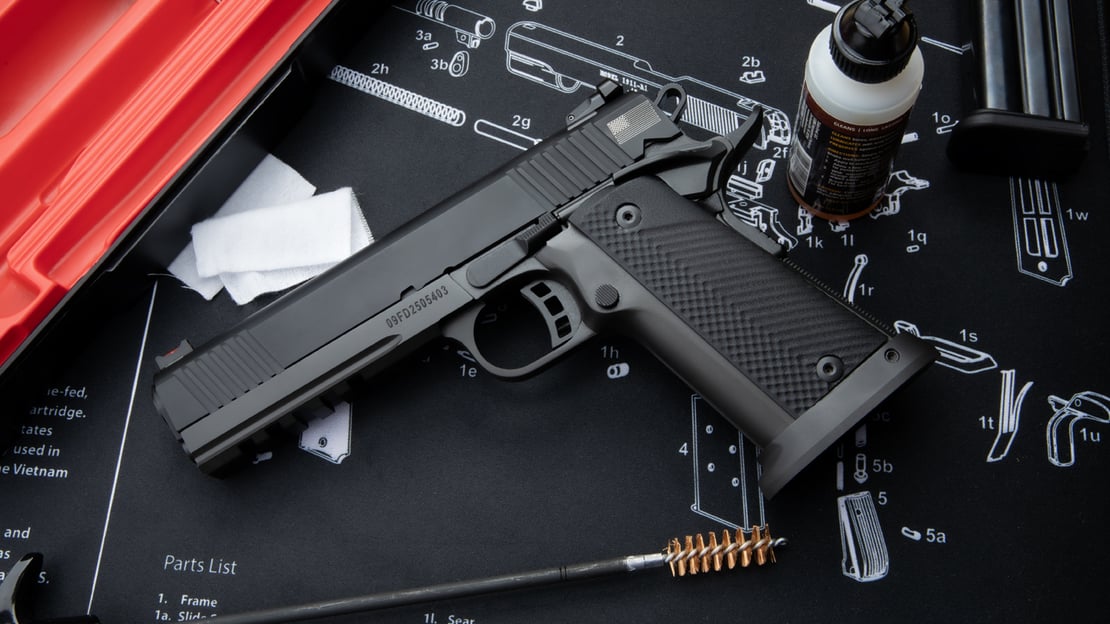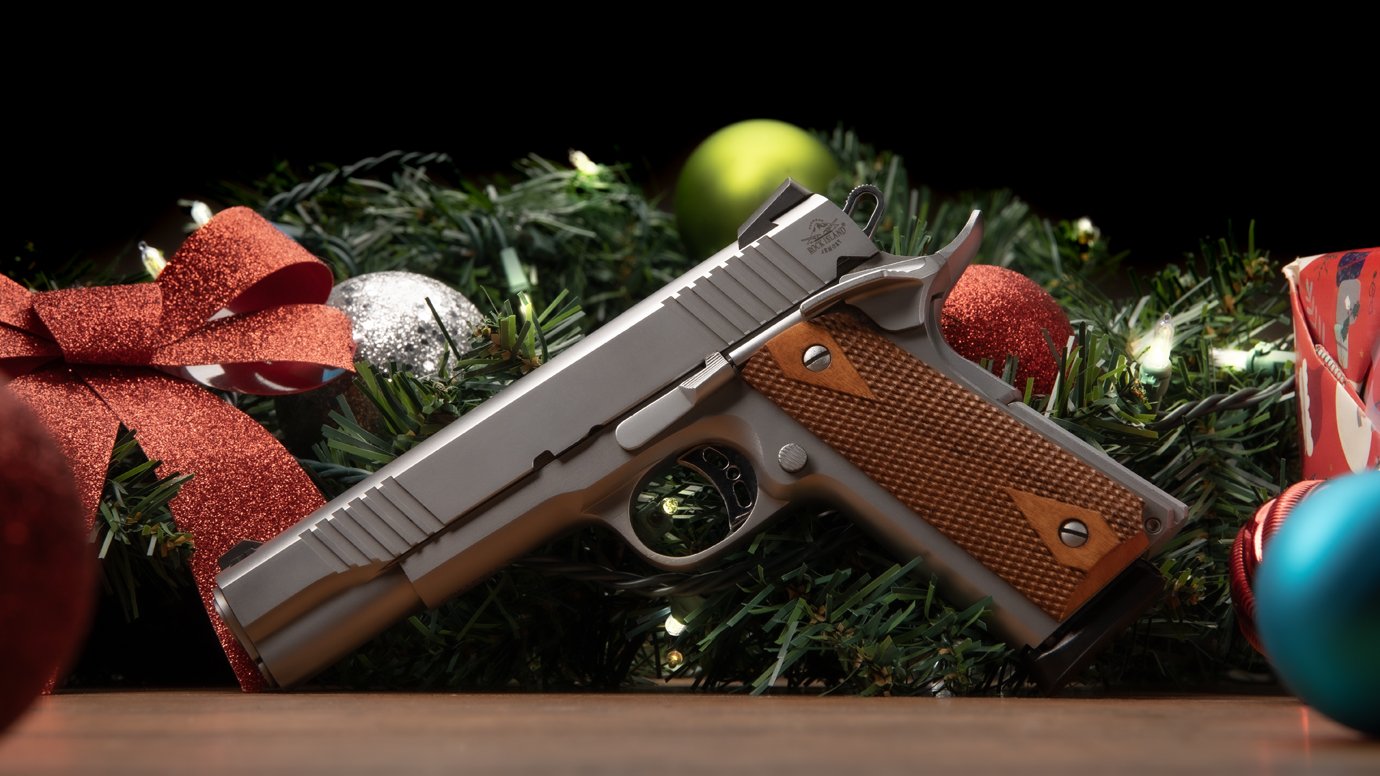Background Checks - What to Expect
Posted by Team Armscor on Jul 24, 2020 6 Minute Read

The National Instant Criminal Background Check System (NICS) is used by Federal Firearms Licensees (FFLs) to determine if someone meets the federal requirements for legally obtaining a firearm. NICS is a quick and effective method of determining a buyer's eligibility but, if you've never been through the process before, it can seem a bit confusing. We've broken down some key aspects of background checks that you should be prepared for before you head to the dealer.
Read on to learn what you should expect from your NICS background check.
How Long Does it Take?
As the program's name might imply, the National Instant Criminal Background Check System has a nearly 92% immediate determination rate, meaning that roughly 92% of applicants receive the results of their NICS background check immediately. In approximately 8% of cases, the NICS verdict is delayed, and the seller has to wait three full days. If no verdict is issued after 3 days, the sale can go through. What does all this mean for you? Well, it means that going through a background check for your purchase will only delay you a few minutes—which is much faster than most first-time gun owners realize.
What Does it Take to Pass?
Generally speaking, there are 5 separate categories that determine whether a person can purchase a gun. They are: criminal history or drug use, mental health, non-citizenship, domestic violence, and dishonorable discharge. Let's go through them each one by one.
Criminal History or Drug Use
If the person who is attempting to buy the firearm has ever been convicted of or is under indictment for a crime punishable by imprisonment for more than one year, they will not pass the NICS background check and they will be unable to purchase a firearm. The same is true for fugitives and those who are unlawful users or are addicted to any controlled substances.
Mental Health
In cases where the potential buyer is adjudicated as a mental defective or has been involuntarily committed to a mental institution, they will be barred from purchasing a firearm. What qualifies as being "involuntarily committed"? That is a bit complicated. If law enforcement officials have taken the individual in for a mental evaluation and the doctors decide to continue treatment after an initial 72 hour period, they are deemed as being held involuntarily and will lose their ability to purchase a firearm.
Non-Citizenship
Another sale-ending instance is non-citizenship. In cases where the would-be buyer is illegally or unlawfully in the United States or has been admitted into the U.S. under a non-immigrant visa, they will be barred from purchasing a gun. The same is true for former U.S. citizens who have since renounced their citizenship.
Domestic Violence
In the united states, people who have been convicted of a "misdemeanor crime of domestic violence" or are subject to certain domestic violence protective orders are prohibited from purchasing or possessing a firearm. The Lautenberg Amendment classifies a misdemeanor crime of domestic violence as "any state or federal misdemeanor that has, as an element, the use or attempted use of physical force, or the threatened use of a deadly weapon, committed by a current or former spouse, parent, or guardian of the victim, by a person with whom the victim shares a child in common, by a person who is cohabiting with or has cohabited with the victim as a spouse, parent, or guardian, or by a person similarly situated to a spouse, parent, or guardian of the victim."
Dishonorable Discharge
Former United States military personnel who were dishonorably discharged from their position. Dishonorable Discharge is a military disqualification that is entered into the NICS indices by the department of defense or the relative military branch. According to Vet Verify, in addition to losing their ability to own a gun, dishonorably discharged soldiers can lose the right to vote, the right to receive governmental assistance, the ability to work for the government and the ability to secure bank loans.
What Are the Possible Results?
There are three possible outcomes with a NICS background check: approved, delayed and denied. When you've been approved, it means that the NICS program did not uncover anything in its background check that would prohibit you from owning a firearm. The "delayed" response means that the NICS search found a record that requires more research before it can determine whether or not the applicant is disqualified. A denied response from a NICS search means that the program uncovered something in its check that disqualifies you from owning a gun. If your application has been denied or delayed, you can appeal it by following the procedures in the FBI's NICS Guide for Appealing a Firearm Transfer.
The vast majority of NICS background checks return with an instant approval, so there's no need for the average aspiring gun owner to be concerned. Your dealer will be very familiar with the process, and odds are good that you will be in and out with your firearm in hand.







